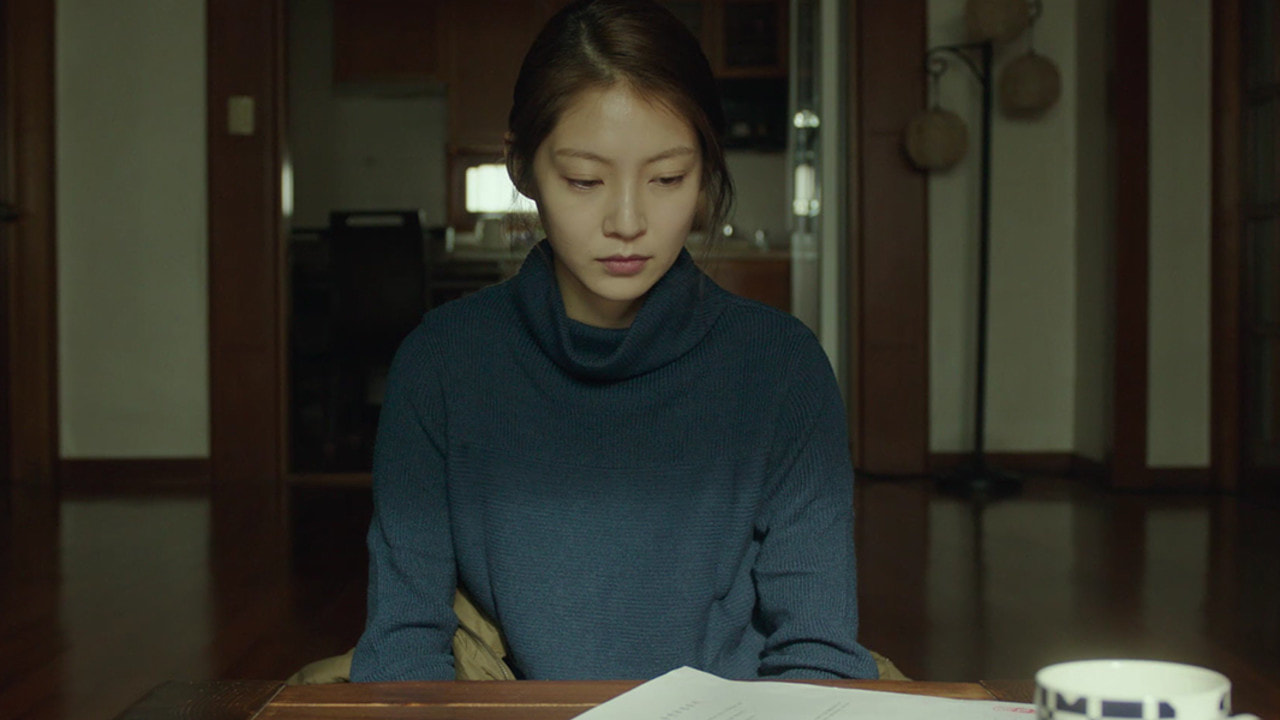|
Gong Seung-yeon in Aloners (2021) In her thoughtful debut feature Aloners, Hong Sung-eun muses on the question of how to live alone and not suffer from loneliness. While there is no definite key answer that applies to all, there is a reassurance to not knowing. There is a specificity to the story of Aloners that makes it resound so deeply on a universal level. In the most meditative and quiet of ways, Sung-eun tells an empathetic narrative of her protagonist’s loneliness. At the center of her film is an observational lived-in performance by Gong Seung-yeon as Jina, top employee at a credit card call center. The job requires practiced and reliable communication, without the need to build personal relationships beyond providing a service. It’s a job that feeds the way she self-isolates as a form of self-protection. The grief she suffers permeates on a daily basis, taking the shape of shutting out the world around her. Underneath the knee-jerk exterior she presents to the world of a person who prefers to be alone, is a person who isn’t so great on her own. The character study that unfolds is a compelling exploration of learning to face uncomfortable emotions. Aloners is a beautifully restrained, assured portrait of grieving the loss of human connection.
Jina’s job encourages her dependence on technology as communication. She constantly has a screen playing; whether it be the late-night bright static of her TV, or a rabbit hole of videos streaming on her phone. The most recent on her playlist is footage from a home camera installed at her late mother’s house, which her father (Park Jeong-bak) now occupies. Instead of visiting her father, she watches him from afar in real-time. Their relationship exists mostly on a digital platform where she can control how much access he has; brief phone calls and ignored messages sum up where the communication stands. Too afraid to admit the reality of her emotions and part ways with what no longer serves her, Jina avoids letting others in. In the process, the world becomes a blur. When she discovers one day that her next door neighbor has been dead inside his home for a week, she claims she could have sworn she saw him that very morning. Aloners conveys a mindset that is not often portrayed with such delicacy and empathy. The protagonist is so utterly relatable in the way her loneliness acts as both a problem and a solution. It’s a mentally draining cycle in which a breakthrough can be difficult to come by. Her days turn into night and back again in the blink of an eye, but upon the news of her neighbour, she begins to reflect on what she’s missing. The beauty of life is in its unexpectedness, particularly in how a stranger can unassumingly walk into the picture and ever so slightly move the axis of another person’s world. Aloners has a subtle energy, a slow moving narrative that is deeply observational and hauntingly universal in its focus on a relatable subject. Sung-eun reaffirms the power of building relationships in real life. Once jumping over the hurdle of letting someone in, the hope that shines through is a sight to behold. The hope of being understood and heard, of being seen and comforted through your fears of rejection or getting hurt. Aloners is not just about the building blocks of how to get here, it’s not just about reaching out to people and spending time with people. The story also shines a light on the time and energy needed to cultivate a healthy relationship with yourself. Sung-eun makes strong narrative choices in the supporting characters with whom Jina encounters, notably her underperforming co-worker Sujin (Jung Da-eun) who is the opposite of Jina: always wanting to make friends, not wanting to be alone. When tasked with training this girl, Jina realizes first-hand how shutting people out has an effect on others. Their scenes unfold in such an interesting way that traces Jina’s fear of admitting parting moments, and also brilliantly analyzes capitalism. It’s rewarded behavior to reassure an irrational angry caller, for instance, while frowned upon to stand up for yourself and refuse being apologetic. The trajectory of their scenes lead to an emotional climax with understated power. The fear of saying goodbyes is a mounting one for Jina; never given the courtesy of a farewell in the past, she finds immense challenge in extending the act to others. Met at a point where people had been blurs in the background of her life for so long, the realization she faces in the film is filled with hope. Through a wonderful performance by Gong Seung-yeon, who can speak a thousand words with a glance or a change in posture, Aloners hits close to home as a portrait of solitary existence. Hong Sung-eun has such a clear voice and brings comforting specificity to a subject that can often be intimidating to face alone.
0 Comments
Leave a Reply. |
Archives
June 2024
Categories |


 RSS Feed
RSS Feed